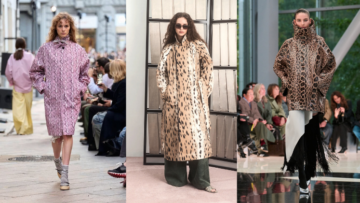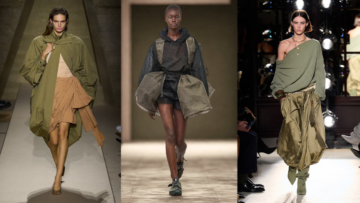As modern day consumers become more concerned with increased awareness regarding the clothes they buy, they want to know where the fabric comes from, who made it and if it was made in ethical conditions.
Global brands are starting to take notice of the growing demand for honest and ethical sourcing in the fashion industry. Thus, manufacturers are now being vetted not only for production capabilities, but also on how they run their operations – whether working conditions match expectations. Are production facilities transparent? Are they concerned about basic worker rights? Do they act with integrity?
After Rana Plaza, Bangladesh has transformed itself completely to becoming the world’s topmost compliant fashion production destination with a view to securing business for years to come.
On the other hand, the topic of ethical sourcing cannot be one-sided. While brands emphasise ethical sourcing, the concept of ethical buying is conspicuously overlooked. Too often, buyers avoid discussing fair prices. A sustainable industry cannot be built on ethical sourcing alone if the topic of ethical buying is ignored. It is as though having A-level expectations while offering C-level prices. In the name of market price, just because the topic of ethical buying is not as glorified, it is always made to seem like manufacturers have to comply to keep lines running.
I would also like to bust the prevailing myth that labour issues in Bangladesh pose a reputational risk for global brands. We have over 3,000 active garment factories; now, if one is to spread the number of problems that arise due to worker related issues into a per month basis – you will see that on an average, we have around 2/3 issues per month. Moreover, these factories mostly are located in certain marked problematic areas. At scale, the issues aren’t as Goliath as they are made up to be.
Yes, any kind of unrest is unfortunate, but most of the time, it’s very local and it is not fair to label the entire industry as unstable. Problem arises when these incidents are often blown out of proportion by media for the usual pursuit of views, credit and relevancy, which creates a negative image of the whole sector, economy, nation. Often times, some opportunists aim to take advantage of such negative perception. They use these so-called ‘risky’, ‘unstable’ labels as a way to holding orders, using conservative buying projections as a means to drive prices down.
It’s important to keep an eye on competitors and study how they conduct business. When you look at the numbers, it might not make sense why buyers are choosing countries like Vietnam, China, or Indonesia over us. The average monthly wage in Bangladesh is around US $ 95, while in Vietnam, it’s about US $ 300. But the real reason buyers are shifting is not just about wages. It’s about productivity and positioning. Our efficiency is lower compared to them and that makes all the difference in the final output. Other factors such as quicker lead times, robust transport logistics and strategic geographic advantages, particularly in shipping to the US and Europe, make them highly competitive.
Bangladesh, while boasting higher capacity and vast number of production facilities, lags in logistical efficiency and infrastructure. The transport cost from Bangladesh to key markets like the US and Europe is approximately 40 per cent higher than Vietnam or India. Energy supply remains erratic and financing costs are burdensome due to high interest rates.
The inflow of Foreign Direct Investment (FDI) into Bangladesh is also sluggish compared to Vietnam, reflecting investor caution. In fact, Chinese investors are heavily exploring opportunities in countries like Vietnam and Cambodia, especially in man-made fibres, high-efficiency factories and vertically integrated supply chains.
Tidying Up from Within
The absence of a clear electoral roadmap and ongoing governance’s instability make international brands cautious. In business, uncertainty is the enemy of investment. Recently I had asked a buyer why they have become conservative suddenly from June-July onwards? His answer was, “..because nobody knows what’s going to happen and frankly at the end of the day, China has a beautiful needle.”
In the absence of clear policies and reforms, buyers are holding conservative positions. This is especially evident in order placements across the board for all producers, all product types. Direct buyers remain somewhat confident and are still placing orders, but trading houses, having more flexibility and being mobile, are hedging their risks by diverting some orders to Vietnam, Cambodia and India.
This is not a reflection of distrust but of prudent business behaviour. Bangladesh must respond with clear governance, investment-friendly policies and a proactive industry narrative. Order flow to other countries is not uniform.
Trading houses are diverting simpler product categories and fast fashion orders due to Bangladesh’s longer lead times and costlier logistics. Basics and premium lines, which require scale and compliance, still largely remain in Bangladesh.
However, if Bangladesh does not address its systemic inefficiencies, even these segments could erode. The consequences will be dire: loss of market share, factory closures, job losses and a dent in national exports.
| “Ethical sourcing can’t be one-sided. While brands emphasise ethical sourcing, the concept of ethical buying is conspicuously absent. Too often, buyers avoid discussing fair prices. A sustainable industry cannot be built on ethical sourcing alone if the topic of ethical buying is ignored.” |
The path forward lies in a structural shift like improving productivity, modernising management and investing in energy-efficient technologies. If we want to remain competitive, we need to fix our customs processes and upgrade our ports. Another key area is man-made fibres, because that’s where global demand is growing fast.
We must also focus on investing in a bilingual, tech-savvy workforce for better communication with buyers, similar to how China benefits from language advantages in markets like Vietnam and Cambodia.
At a time when unethical sourcing is no longer optional, Bangladesh must stop relying on its past strengths and start building future-proof capabilities today. What is important to note is, Bangladesh is a resilient nation. Now imagine, adding ‘unity’ to resilience? That is the recipe for success.
Shah Rayeed Chowdhury is the Director of Evince Group with a BBA cum Laude (Hons.) degree from Pace University, New York. He joined the family business in 2014. Rayeed has played a key role in modernising operations and expanding the company’s presence in the RMG industry. He oversees several subsidiaries, including Argon Spinning, Argon Denims Ltd, Evince Textiles Ltd., Evince Design and Fashions Ltd, Evince Ltd., Evince Garments Ltd., Evitex Apparels Ltd., Evitex Dress Shirt Ltd., Noir and Miniso Bangladesh.







